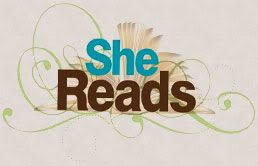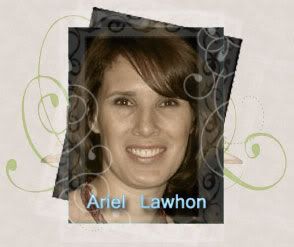
~
"That's What I love about reading: one tiny thing will interest you in a book, and that tiny thing will lead you on to another book, and
another bit there will lead you on to a third book. It's geometrically progressive - all with no end in sight, and for no other reason than sheer enjoyment."
~The Guernsey Literary and Potato Peel Pie Society

So why do many of us also write fiction? For the same reason, I believe. We enjoy it. Our hard drives are littered with chunks of narrative. Notebooks filled with story ideas. The blinking cursor beckons us to come and create.
I am reminded of Eric Liddell’s line in Chariots of Fire, “I believe God made me for a purpose...and when I run I feel His pleasure.”
We could just as easily say, “When I read I feel His pleasure.”
Or:
“When I write I feel His pleasure.”
Deriving pleasure from creation is something that God modeled for us in the first few chapters of Genesis. The way He worked and then called it “good” at the end of each day. He was proud of what He did even though it was unfinished. God didn’t wait for the reviews to come in after the project was complete. He found his joy in the act of creating. The messiness of it. The way it lumped together, incomplete until the sixth day.
God did the very thing we do when we sit in front of a computer. He created. And because we are made in His image, we create as well. I marvel at the way He enjoyed the process. And I am ashamed that I’m ever looking to being done with my novels, instead of embracing them as I wrestle and revise. That’s where my joy and purpose should be found.
So when was the last time you truly enjoyed the writing process? Not the final draft or getting published or the favorable reviews, but the down-in-the-trenches act of firing out words like a gatling gun? Because that is when we connect with our readers. When we enjoy our writing, it passes through to them on a level we can neither tap into nor control. It’s a meeting of the minds – an emotional connection that allows us to understand one another. Readers are smart. They know if we’ve enjoyed our work. They can feel it. And they respond to it when we do.
So our challenge is to maintain our joy in the act of writing. At the end of each day’s work, we need to declare it good. Let’s think like our readers and find pleasure the book we’re crafting. Because if we don’t enjoy it, they won’t either.












9 comments:
Great post, Ariel. We are so glad to have you here!
Your quote from The Guernsey Literary and Potato Peel Pie Society made me think about the expectations that a novel sets up in the mind of the reader. If she or he is intrigued by that one point which leads to the next book, and that next book doesn't meet the expectations, the reader (or I as a reader) feels loss. Not just the investment in the book, but time as well.
That is one reason that book reviewers (professional and those who just love reading) and book clubs are so essential to a writer. We need to know what it was that beckoned to the reader in the first place. What is it that made the reader want to find another book "like" it?
Very insightful, Ariel, and thank you.
There are some parts of the process I enjoy more than others, but I really do try to savor each step. It's so fun creating a story! The Liddell reference is right on.
My best days are the ones that start off with me pushing that literary stone uphill, and end with me getting up from the computer giggling and saying, "This is FUN!" There are some days when it's all pushing stones, but they're few. Usually if I keep at it long enough, the fun shows up.
I love the analogy to God's creation, and not until today did I pause to really reflect on (selah) how much He enjoyed the process, day by day proclaiming it Good. Wonderful post!
Ladies thanks for letting me hang out at Novel Matters today. I know this will be a great partnership.
Latayne - you brought up a great question. What are book clubs (in general) and readers (specifically) responding to in fiction? I think a quick glance at some of the most popular book club picks over the last few years can help us identify a few things that grab readers:
The Help
Water For Elephants
The Kite Runner
My Sister's Keeper
The Secret Life of Bees
Olive Kitteridge
The Time Travelers Wife
The first thing that comes to mind when I see this list is unique premise. (Which is SO very important and will be the subject of my next post) Each of them is told with a distinctive voice. Each of them captured reader's emotions.
As writers we need to ask ourselves why readers respond to these books. From that list, can you identify any other important traits?
Welcome to Novel Matters, Ariel. I love your post. It made me remember something I've actually taught on before: the joy is in the journey. Sure, for a writer there's great satisfaction in completing a novel, but the real pleasure is in the process of writing it, where the author is completely entwined in the lives of her characters, where that God-like creativity is at work.
Your post reminds us to savor the writing of our novels as much as we savor the reading of someone else's novel. Ah, yes, fine chocolate comes to mind. But milk chocolate, please, not dark. Never dark.
Thank you for this post, Ariel. I remembered those lines from Eric Liddell in the movie. Some times I think the same way when I'm writing a piece I know is God honoring. Good to see you here. Pat
Ariel, thanks for the great post. I think it's worth noting that along with a unique premise, all the books in your list (with one exception) are written in first person. These are all powerful stories - I think made even more powerful by the choice of voice.
What a great post, and what great comments. Some of the best lessons I've gotten in the joy of creation came from stage performers, because the truth was so immediate: joy shows, and it's captivating.
Ariel, I look at some of the books you listed in your comment about book clubs, and it strikes me: joy in The Kite Runner? In My Sisters Keeper? I think it's there, but what strange places to find it, in books whose topics are so painful? I'm going to have to think about that for a while.
And I'm going to have to read The Help.
Kathleen - I struggled to read The Kite Runner, not because it wasn't a worthy novel, but because it was HARD. And I've been thinking about your comment: joy in that book? After chewing on it for a while, I think the joy comes with the change that occurs at the end of the novel. Change in the character and change in reader. The word I hear most often with Kite Runner is redemption. And I believe there is always joy when someone is redeemed.
I would love to hear about Khaled Housseni's emotional journey as he wrote that novel. I wonder if he cried. Did he squirm as he made those choices through his characters? What did he feel for Amir? Did he love writing that novel even though it was painful. He must have felt each of those things, or I couldn't have felt them myself as I read.
Just my thoughts.
And yes, you must read The Help. I gobbled it up in two days.
Post a Comment